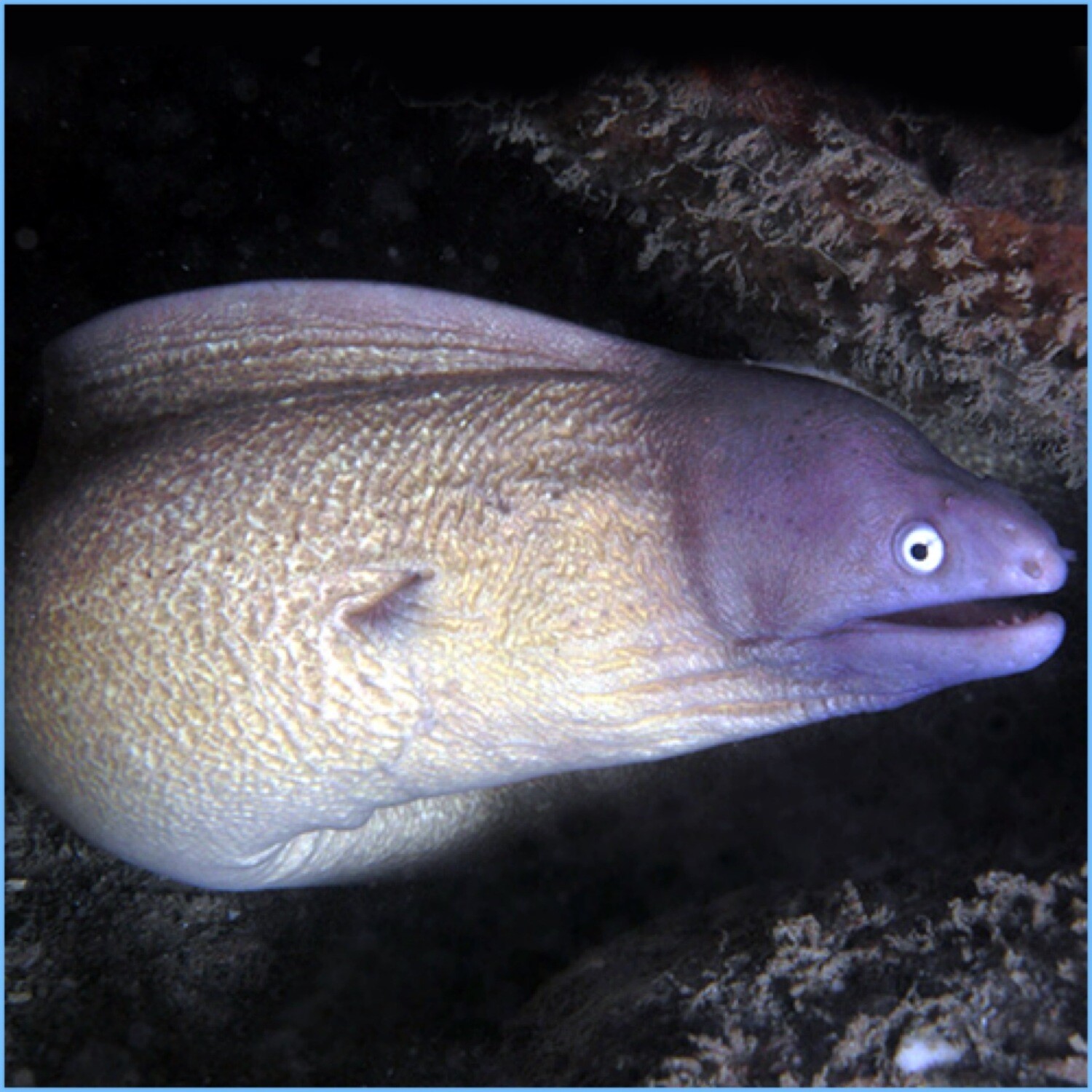White-Eyed Moray Eel
Main Diet: Carnivore (meaty foods, fish, crustaceans)
Compatibility: Semi-aggressive, should be kept with caution
Reef Safe: No, may prey on smaller fish and invertebrates
Adult Size: Up to 3 feet
Suggested Tank Size: 100+ gallons
The Grey White Eye Moray Eel, or Gymnothorax thyrsoideus, is a fascinating and unique marine creature that requires a moderate to difficult level of care. With its striking appearance and intriguing behavior, it can be a captivating addition to a well-maintained aquarium.
Being a carnivore, the Grey White Eye Moray Eel needs a diet consisting primarily of meaty foods. This can include fish, crustaceans, and other high-quality frozen and live food options suitable for carnivorous marine species. Providing a varied diet is crucial to ensure their nutritional needs are met.
In terms of compatibility, the Grey White Eye Moray Eel is considered semi-aggressive. While it can coexist with larger tank mates, it should be kept with caution as it may become territorial or aggressive towards other fish that venture too close to its hiding spots. It is best to choose tank mates that are robust and able to withstand any potential aggression.
Unfortunately, the Grey White Eye Moray Eel is not reef safe. It has a strong predatory instinct and may feed on smaller fish and invertebrates, posing a threat to the delicate balance of a reef tank. It is advisable to keep them in a fish-only setup or with larger, less vulnerable invertebrates.
This species can grow up to 3 feet in length, so a tank size of 100+ gallons is recommended to accommodate their size and provide ample swimming space. The tank should also be equipped with plenty of hiding spots and caves where the eel can retreat and feel secure.
In summary, the Grey White Eye Moray Eel is a captivating but challenging addition to a marine aquarium. Its carnivorous diet, semi-aggressive nature, incompatibility with reef tanks, potential adult size of up to 3 feet, and suggested tank size of 100+ gallons make it suitable for experienced aquarists who can provide the necessary care and attention to ensure its well-being.

